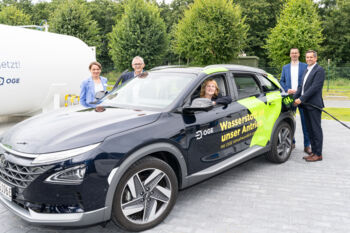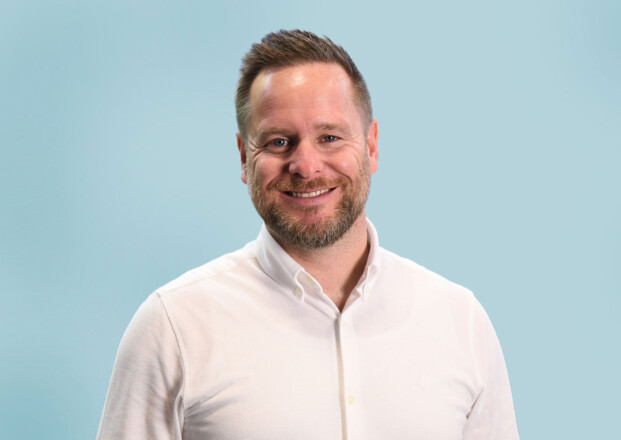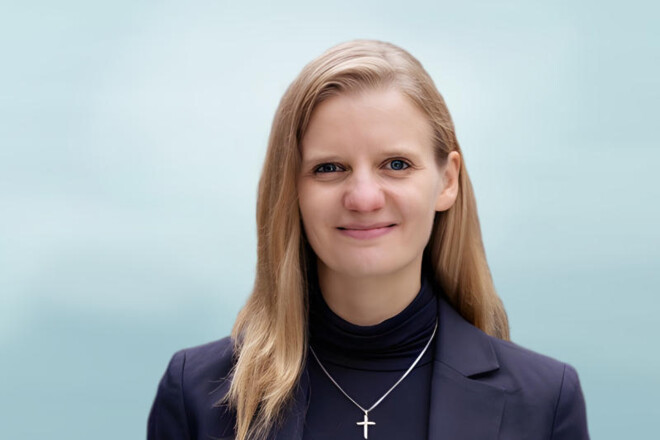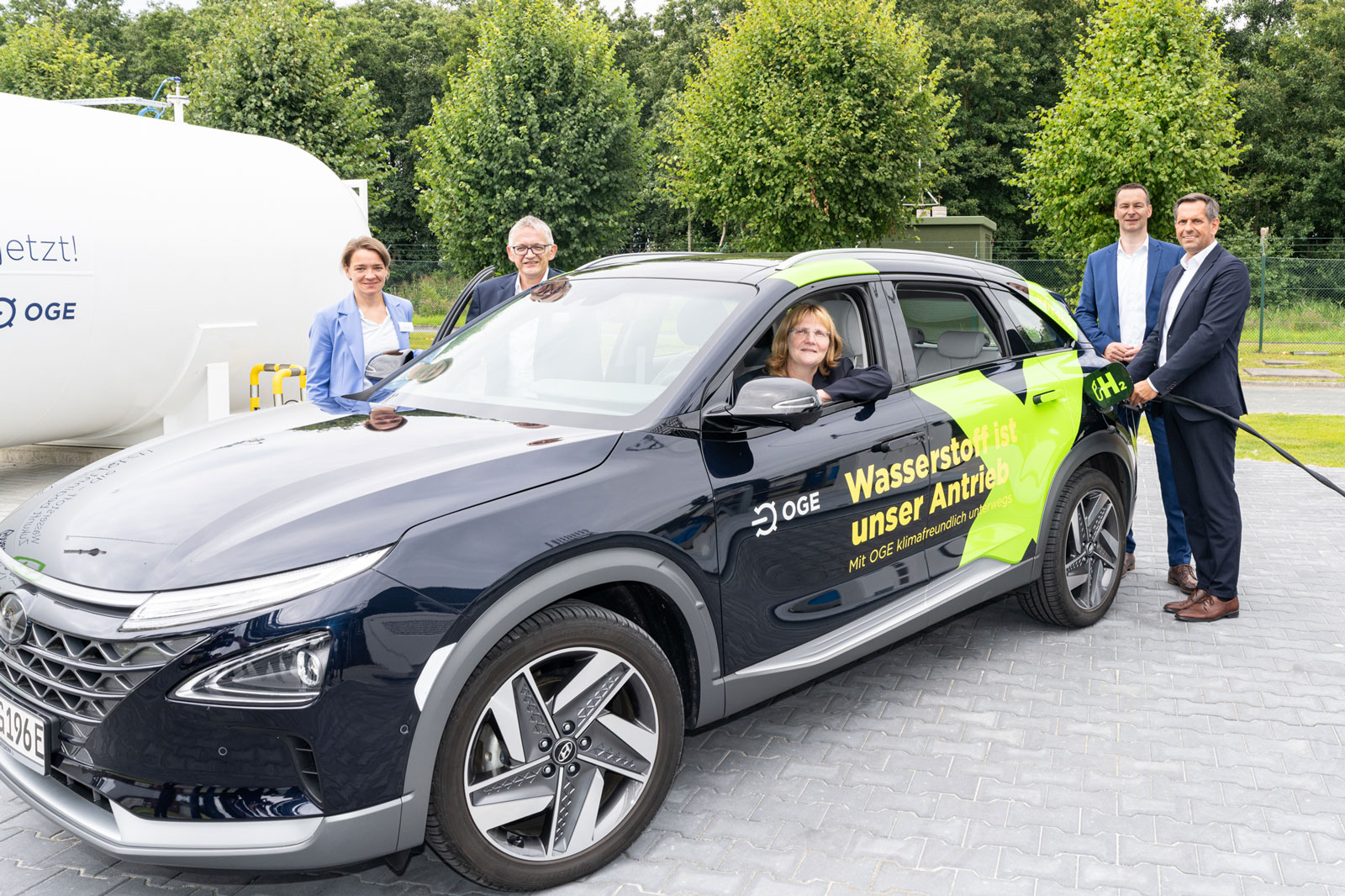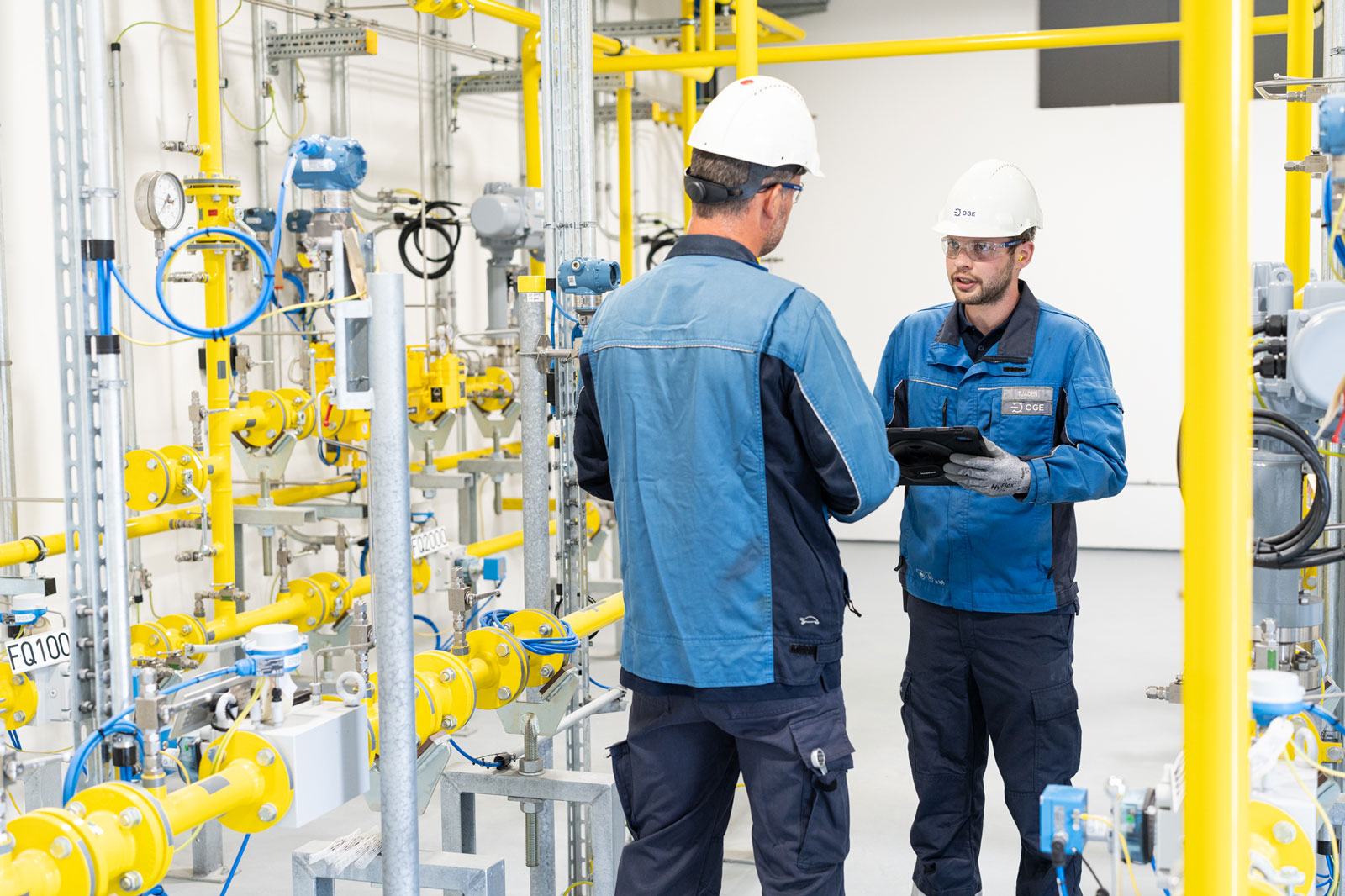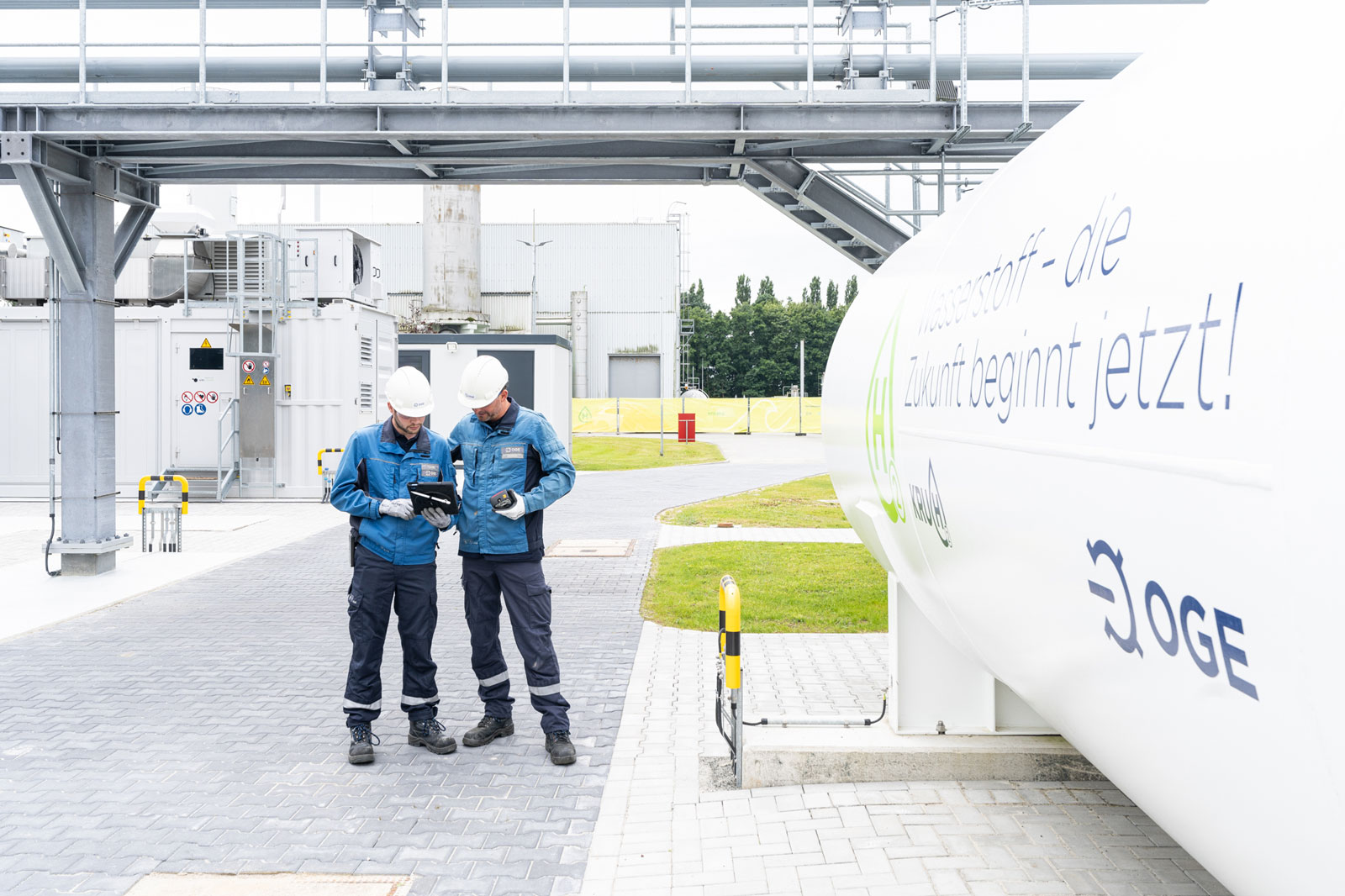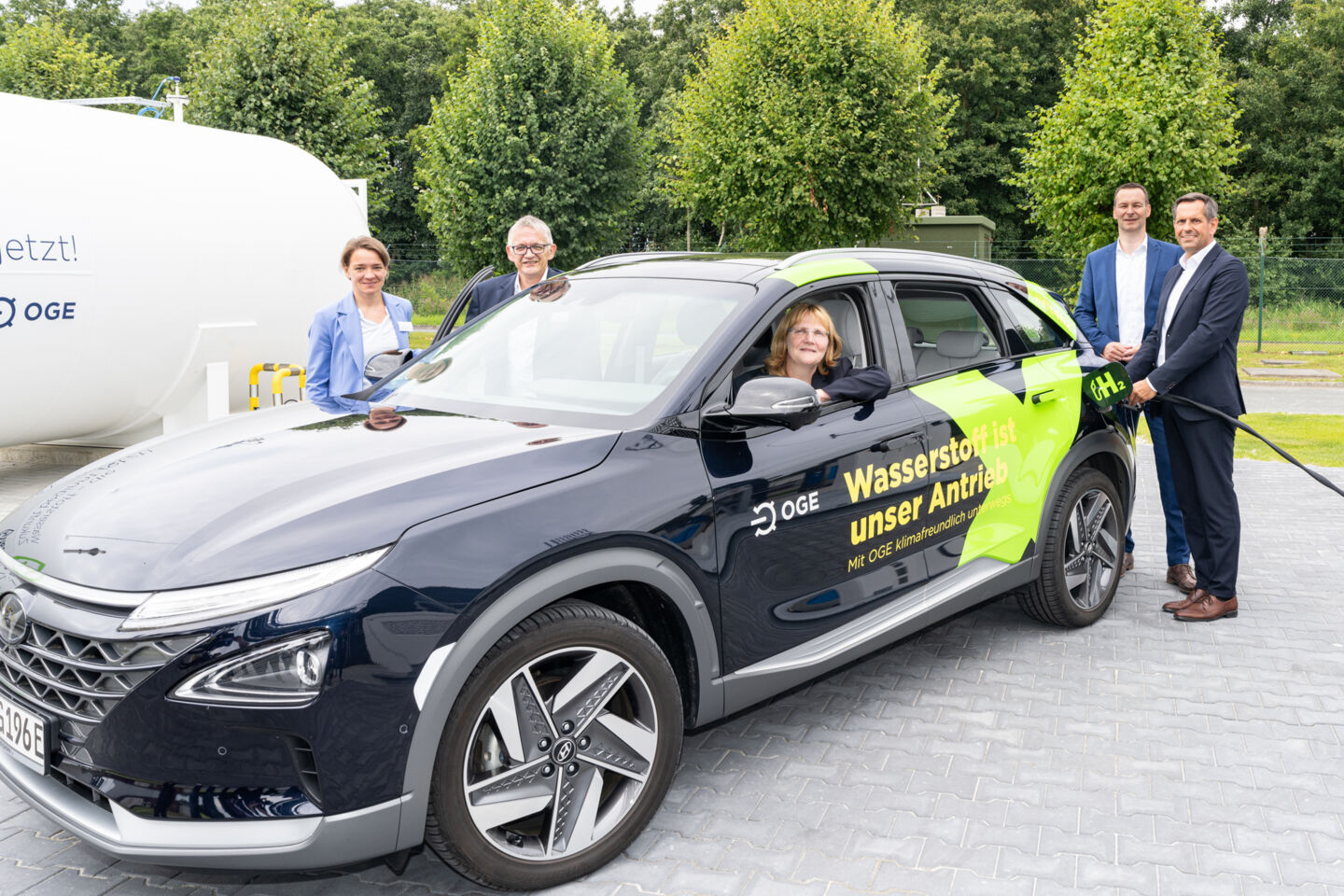Funded pilot project with model character
The idea for KRUH2 was born in 2019. The Krummhörn region has an abundance of renewable energy, particularly from onshore and offshore wind, which is ideal for producing green hydrogen, establishing a closed hydrogen cycle and then using this to supplement OGE’s energy needs on site. “KRUH2 is a real-life project with a model character. Here in Krummhörn, where wind in particular offers great potential for renewable energy, it demonstrates how sector coupling can work – in this case, specifically to supply our technical operations with heat and meet mobility demands,” said Dr Thomas Hüwener, OGE’s CEO, describing the hydrogen project.
Economics Minister Olaf Lies was impressed: “With this project, OGE is demonstrating the future of our energy supply, and it is no coincidence that such projects are being developed here in Lower Saxony. Just last week, we announced the funding of ten large-scale hydrogen projects in Berlin together with Federal Economics Minister Robert Habeck, for which the federal and state governments are investing 1.3 billion euros. Lower Saxony has the chance to become one of the most important hydrogen producers in Europe, and this is precisely where KRUH2 is a project that will make an important contribution to the energy transition and to achieving Germany’s climate targets, both now and in the future. This is because OGE is demonstrating solutions to one of the most important questions: how to use excess wind power.”
The heart of the plant is the 1-megawatt electrolyzer. “It can produce approx. 210 Nm³/h of hydrogen, which is 18 to 19 kg of hydrogen per hour, enough to fill three cars,” said project manager Harald Beek, who is responsible for delivering the innovative KRUH2 idea together with his team. The hydrogen produced is temporarily stored and used at the compressor station. Two pressure tanks, each with a usable volume of 1,000 Nm³, are available for storage.
KRUH2 also has a “digital twin” to permanently optimize the hydrogen value chain. Real-time data from the technical plant combined with electricity market data and trends allow production planning with improved production costs, and this leads to a significant reduction in the production costs for hydrogen. On this basis, OGE also uses hydrogen for mobility in addition to heat supply. The company’s own filling station supplies three hydrogen vehicles that are available for use by the operations team.
“KRUH2 is not just a project that makes the energy transition tangible here on site. Above all, it is the result of the innovative and farsighted thinking of our employees. The team here in Krummhörn recognised the opportunities and developed KRUH2 with expertise and great commitment,” commented Dr Thomas Hüwener.
